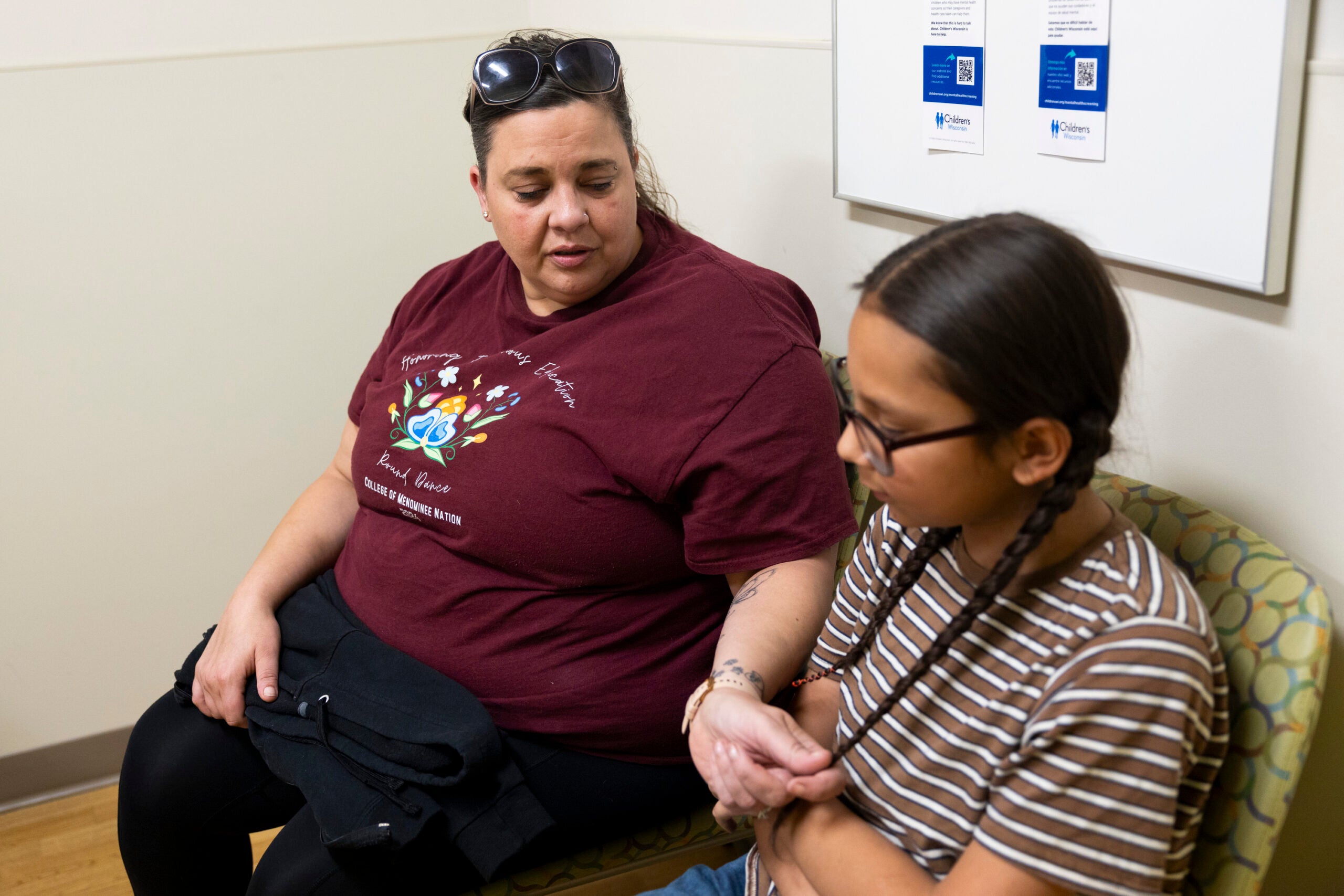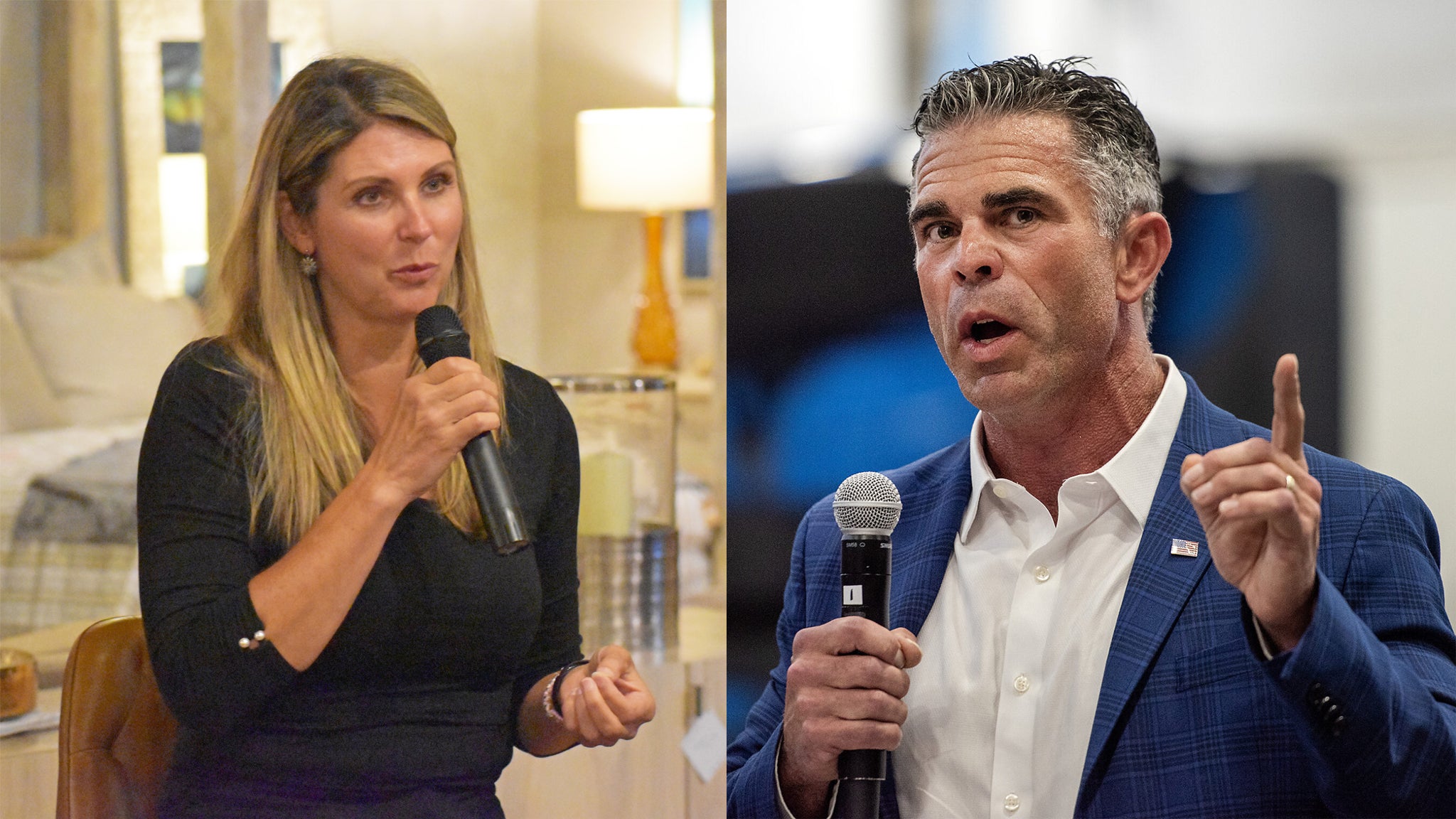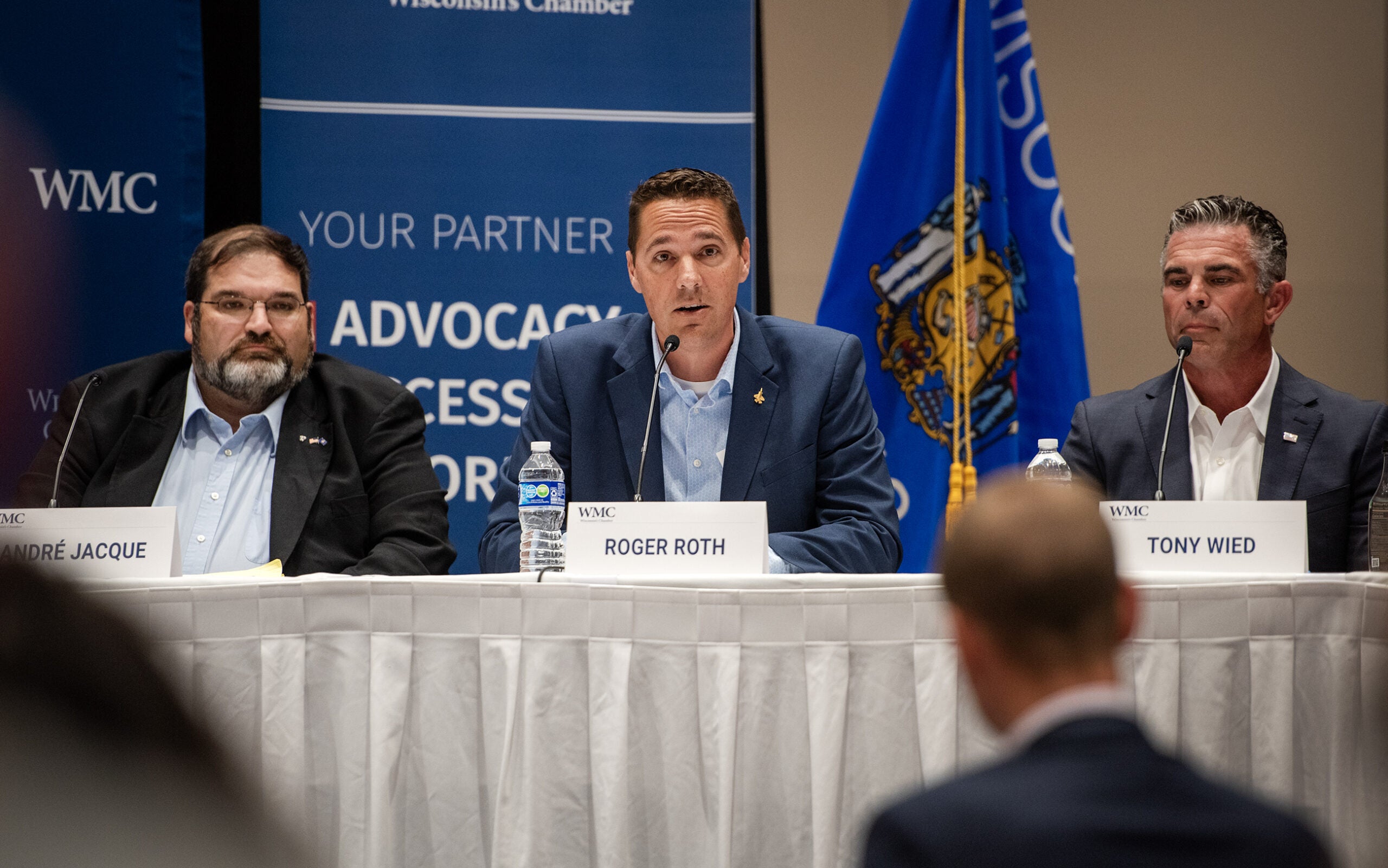One Milwaukee school, given all the tools to succeed and improve, saw less suspensions and better attendance, but test results didn’t make a dramatic improvement. We learn about a new investigative reporting series that takes a look at what it might take for Wisconsin schools to catch up. We also hear from Grant Barrett of “A Way With Words” to learn more about how new words get added to the dictionary. And we take a look at a top news story.
Featured in this Show
-
The Impact Of Student Turnover
A new series from the Milwaukee Journal Sentinel looks at how high rates of student turnover affect children, parents, teachers and administrators. In the first installment, an overview of the issue, and a vivid example from Milwaukee.
-
Eighth Congressional District Candidate Interview: Representative Mike Gallagher
In our series of interviews with candidates for the Eighth Congressional seat, we speak with incumbent Congressman Mike Gallagher. He is running as a Republican in the November 6 general election. He is being challenged by Democrat Beau Liegeois.
-
In His Re-Election Bid, US Rep. Mike Gallagher Says Congressional Division A Top Issue
Labeling divisions between political parties as one of the biggest issues facing Congress, U.S. Rep. Mike Gallagher says discussions should be had about how to get Congress functioning again.
Gallagher, an incumbent Republican candidate serving Wisconsin’s 8th Congressional District is facing Democratic challenger Beau Liegeois in the upcoming election Tuesday, Nov. 6. The district covers northeastern Wisconsin, including Door County and the cities of Appleton, Green Bay and Marinette.
Employed in the private sector as a market strategist for the Green Bay company Breakthrough Fuel, Gallagher was first elected in 2016. He talks about some splits from his own party’s agenda, including steel and aluminum tariffs in an interview with WPR’s “Central Time” host Rob Ferrett.
This interview has been edited for brevity and clarity.
Rob Ferrett: What do you see as the most important issue facing Congress from the perspective of your constituents in the 8th Congressional District?
Mike Gallagher: The question I hear the most from both, from people is, “Why can’t you guys just work together and get stuff done in Congress?”
I think the fact that Congress has a 12 percent approval rating suggests that the biggest issue — the one that affects all of the other policy issues — is the dysfunction itself.
It’s the way in which the institution has become a shell of its former self, has surrendered a lot of its constitutional power to the executive branch and isn’t doing its job.
That’s why I founded the Reformers Caucus. That’s why I joined the Problem Solvers Caucus. That’s why I believe regardless of who wins in November, we then have a critical discussion about how do we get Congress working again?
RF: What would you want to do to tackle the annual deficit, the growing federal debt?
MG: If you look longer term at the budget picture, we’re only fighting over 30 percent of taxpayer money. The rest is just going out the door every single year without any review. So, at some point, we’re going to have to get serious about how do we control costs for health care? What are we doing to shore up Social Security to make sure it’s there in 20 years?
And so it’s going to require men and women of good faith on both sides of the aisle willing to sit down and have an honest debate. We don’t have to agree on everything, but in order to get that budget under control, in order to get the deficit and debt under control, that’s the conversation we’re going to have nationally.
If we just have a bunch of money flooding into all our elections every year, attacking people for the issues, we’re never going to get the ball down the field, I fear.
RF: What would you like to see in 2019 regarding immigration?
MG: I voted for a bill that I thought wasn’t perfect but would have fixed a lot of the problems. It would have had robust border security, and not just a physical barrier or a wall, but also technology, personnel. The fact is the border is not secure.
But the other fact is that it’s not just a matter of border security. Most people coming in our country illegally are doing it by overstaying their visas.
But I also think we have to have a system that is flexible enough where if people want to come here legally, if they want to pay their taxes and one day become a citizen, we should say, “Amen.” That’s great. That’s part of what made this country great, particularly at a time when we’re struggling to find workers. We can do that while at the same time saying we should make it difficult if not impossible for people to come here illegally.
So I just would encourage my colleagues to maybe depoliticize it a little bit less to have a more open and honest discussion.
RF: The Trump administration has imposed tariffs on Chinese goods as well as those from Mexico, Canada and the EU — aluminum and steel foremost among them — what do you think of that strategy on trade?
MG: You have to distinguish between two lines of effort. There’s the trade activity of getting tough on China. I think by and large that has been a long overdue step.
I’ve been very critical of the steel and aluminum tariffs. If you look at the tariffs our allies have, ours are higher across the board on average than the EU and Canada. Also, I’m really concerned that our farmers, our manufacturers in Wisconsin are going to get caught in the crossfire.
Congress surrendered this authority to the executive branch as part of the trade liberalizing measure. I think Congress should be in the business of clawing back some of this authority. That’s why I introduced legislation that would require Congress to vote on these tariffs. If the White House wants to impose them, it would be retroactive for two years.
-
When Words Become Part Of The Language
Merriam-Webster and Hasbro announced last month the latest additions to the Scrabble dictionary, which will allow players to get points for words such as “facepalm” or “emoji”. These new changes shine a light on how new words enter the English lexicon and evolve with time. We’re joined by Grant Barrett, lexicographer and the host of A Way With Words, about our relationship with words.
Episode Credits
- Rob Ferrett Host
- Judith Siers-Poisson Producer
- Bill Martens Producer
- Natalie Guyette Producer
- J. Carlisle Larsen Producer
- Erin Richards Guest
- Clara Dockter Guest
- Representative Mike Gallagher Guest
- Grant Barrett Guest
Wisconsin Public Radio, © Copyright 2025, Board of Regents of the University of Wisconsin System and Wisconsin Educational Communications Board.



